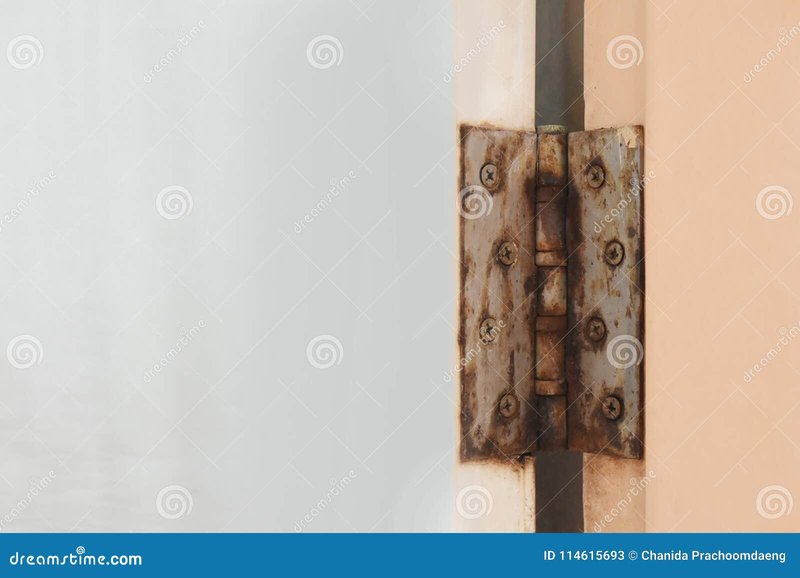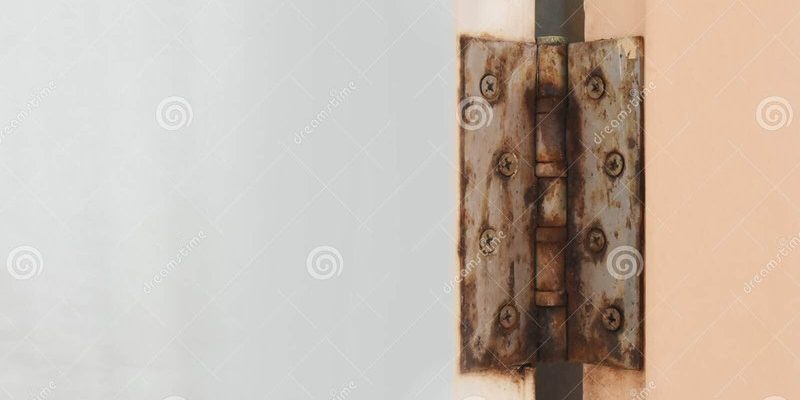
In this article, we’ll explore the best ways to protect your bathroom door hinges from rust. From choosing the right materials to applying effective treatments, I’m here to guide you through each step. We’ll break it down together, so you don’t have to feel overwhelmed. You’ll learn about simple practices that can make a big difference over time, ensuring your bathroom stays not just beautiful but also functional.
Understanding Why Hinges Rust in Bathrooms
First off, let’s chat about why bathroom door hinges are prone to rust. The bathroom environment is unique. With showers and baths, moisture is pretty much a constant companion. This humidity can trickle down onto those metal hinges, setting the stage for rust formation.
Rust occurs when metal is exposed to oxygen and water over time. Think of it like how a wet sponge left in the kitchen can start to smell funky. The moisture leads to decay. So, if your hinges are made of materials that aren’t resistant to corrosion, they can quickly turn from shiny to rusty, impacting not just appearance but also functionality.
Additionally, if you live in a humid climate, your hinges are even more at risk. The warmer temperatures combined with high humidity create the perfect conditions for rust to thrive. So, what’s the best way to combat this? It starts with understanding the enemy.
Choosing the Right Material for Your Hinges
When it comes to preventing rust, material matters. Some materials are just plain better at resisting moisture than others. Stainless steel, for instance, is a popular choice for bathroom door hinges. It has a special coating that helps protect it from rust, making it a strong contender for humid areas.
If stainless steel seems a bit pricey for your budget, consider using plastic hinges. While they might not have the classic look of metal, plastic hinges are completely rust-proof and can still be quite stylish. Plus, they won’t bend or warp easily, which is a bonus.
Another option is brass hinges. They’re not completely rust-proof, but they do have a natural resistance to corrosion. If you go with brass, make sure to regularly apply a protective coating to keep moisture at bay. Choosing the right material is your first line of defense against rust.
Regular Maintenance: The Key to Prevention
Maintenance is where the magic happens. Even with the best materials, neglecting your hinges can lead to rust over time. Set a reminder every few months to check on your bathroom door hinges. Start by cleaning them with a damp cloth to remove any accumulated dust or moisture.
Here’s a simple maintenance routine you can follow:
- Wipe down the hinges with a soft cloth.
- If you see any rust starting, use a fine-grit sandpaper to gently remove it.
- Apply a rust-inhibiting spray or lubricant regularly.
This little routine can go a long way in extending the life of your hinges. If you notice any squeaking, it’s a sign that they may need some lubrication. A little oil can not only prevent rust but also keep the hinges moving smoothly.
Applying Protective Coatings
Speaking of routine maintenance, let’s dive deeper into protective coatings. These coatings can create a barrier between the metal and moisture, significantly reducing the chances of rust. You might wonder what kind of coatings you can use, so let me break it down for you.
There are several options available:
- Oil-based rust inhibitors: These can be sprayed directly onto the hinges and offer good protection. They repel moisture and create a protective layer.
- Wax: Applying a thin layer of wax can also help. It acts as a sealant and is easy to apply. Just remember to reapply occasionally.
- Clear sealants: Products specifically designed for metal, like clear sealants, can provide long-lasting protection from moisture.
When applying these coatings, make sure to do it in a well-ventilated area. Follow the product instructions closely for the best results. It might feel like a small step, but it’s vital to preventing future rust.
Choosing the Right Lubricant for Your Hinges
Let’s not overlook the importance of the right lubricant. If your hinges aren’t lubricated, water can sit and create a perfect rusting environment. You might be wondering what kind of lubricant works best. Here’s the scoop.
Silicone-based lubricants are a great choice as they repel water while still allowing the hinges to move smoothly. Avoid using WD-40 for rust prevention; it’s more of a temporary fix and not meant for long-term protection. Instead, a high-quality silicone spray will provide lasting protection against moisture.
Apply the lubricant using a small nozzle or straw attachment to target just the hinge without overspraying. This will ensure that the lubricant gets into every nook and cranny, keeping rust at bay.
DIY Rust Removal Techniques
So, what if you already have rust on your hinges? No need to panic! There are effective DIY techniques to tackle it. Here are a couple of methods you can try that are friendly to both your wallet and your hinges.
1. Vinegar and Baking Soda: Mix equal parts of vinegar and baking soda to make a paste. Apply it to the rusty areas and let it sit for about an hour. Then, scrub gently with a toothbrush or cloth and rinse.
2. Lemon Juice and Salt: The acidity in lemon juice helps dissolve rust. Sprinkle salt over the rusted areas, then squeeze lemon juice on top. Let it sit for a couple of hours, scrub, and rinse.
After removing rust, don’t forget to reapply a protective coating to keep those hinges safe moving forward. This is essential to prevent rust from returning.
When to Replace Rusty Door Hinges
Sometimes, despite your best efforts, hinges may reach a point where they’re just beyond saving. If you see extensive rust, or if they’re not functioning properly despite cleaning and lubrication, it might be time to consider replacing them.
Look for signs like severe wobbling, difficulty opening or closing the door, or heavy, flaking rust. These are clear indicators that the hinges could affect your door’s functionality. When choosing new hinges, refer back to the material suggestions we discussed, opting for rust-resistant choices.
Replacing them might feel like a hassle, but it’s a smart investment in your home’s longevity. You want your doors to work well and look good, too!
Protecting your interior door hinges from rust in bathrooms is all about prevention and maintenance. By choosing the right materials, applying protective coatings, and keeping up with regular cleaning, you can avoid the frustrations that come with rust. Remember, it’s a small effort that pays off in the long run.
So, whether you’re tackling rust now or planning ahead, take these steps to keep your bathroom hinges in top shape. A little care goes a long way, ensuring you won’t have to deal with the battle against rust down the line.
